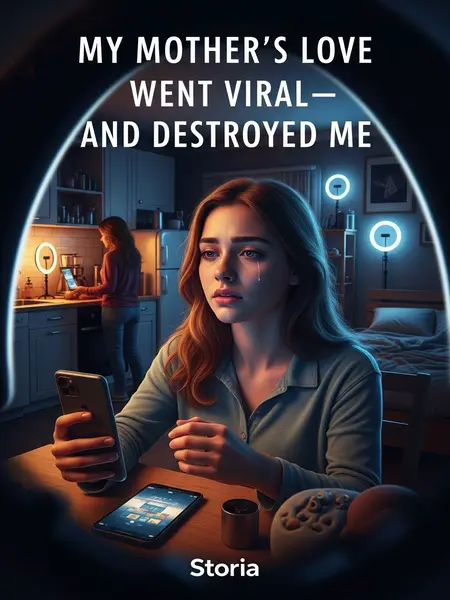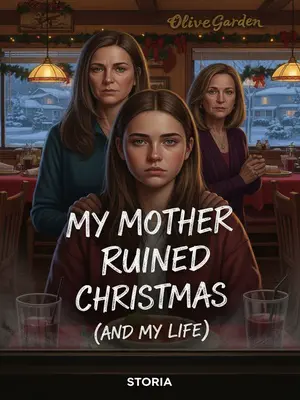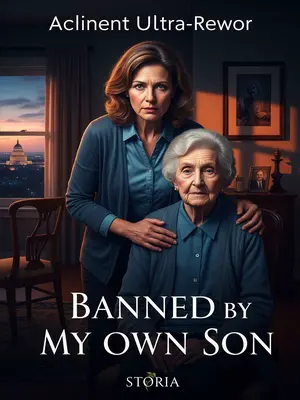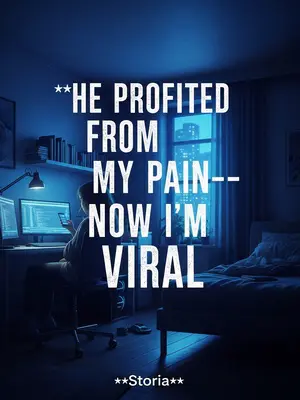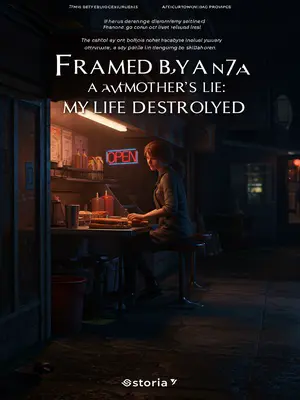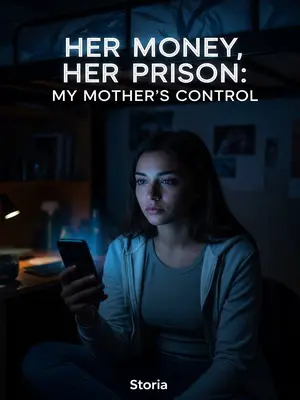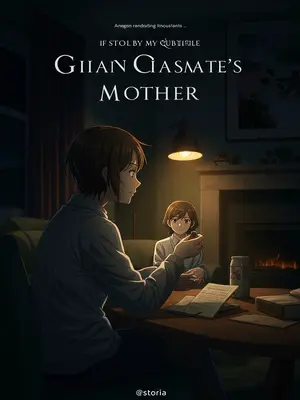Chapter 4: Under the Spotlight, All Alone
The reporter was stunned, then pointed the microphone at Mom. “Excuse me, how could you not know whether your child brought their admission ticket?” Mom was left speechless. The reporter was speechless, too.
I walked confidently into the test site. Nothing could block my light. One diary lesson was enough. I’d long guessed Mom wouldn’t give up easily. She was obsessed with making short videos. The real admission ticket was in my coat pocket. What Mom took out that morning was my mock exam ticket from junior year. The funny thing is, she prided herself on being a good mother, but didn’t even know what my real ticket looked like.
Mom went viral in a different way. “Careless mom thought her kid forgot the admission ticket, but it was a false alarm.” The comments below were no longer all about praising her motherly love.
“The kid is nervous, but the mom is unreliable.”
“Can’t you print a few more, put one in each pocket?”
“The kid is taking the SAT, but the mom is so scatterbrained.”
Ding, ding, ding—test over. Pencils down.
With the bell for the last subject, I felt a heavy weight lift from my shoulders. It was like waking from a long, long dream. For a second, it felt like I was back in freshman year, just dozing off during break. I almost couldn’t believe it was finally over.
After the test, Mom was still a little angry, sulking and not talking to me. I was just happy to be free, and slept for three days straight.
The results came out—it was my best score in three years. I applied to a college hundreds of miles from home, just as I’d hoped. I only went home a few times in four years. I was too embarrassed to show my face at any class reunions—I couldn’t face them. The future looked brighter and brighter. Only Mom stayed where she was.
Before I left home, Mom said she’d cut off my living expenses, but every month, I still received $250 from her in my account. I didn’t dare spend a cent, paying all my tuition and living expenses by working part-time. My roommates saw my situation and found ways to treat me to meals and give me snacks. A few months later, I got a decent check for a short story I published, and life got better.
But what I feared still happened. One day, I was in the dining hall with my roommate, and I felt a familiar, uncomfortable gaze. Soon after, my roommate nudged me:
“Emily, check Twitter—you’re trending!”
The reason was that Mom posted a video online: “Ivy League student doesn’t go home for four years to visit her single mom.” It blew up. In the video, she looked haggard, eyes red and swollen, sobbing. She told viewers how the daughter she raised with so much hardship took the $250 a month she sent, but ignored her.
Mom’s account had a huge fan base, and the topic quickly blew up. Some people, based on the information she revealed, figured out who I was. Thinking they were righteous, they posted my personal info online, demanding I face the consequences.
“Look at this girl—how is she worse than an animal?”
“What’s the use of a fancy degree? Without basic morals, it’s worthless.”
“I’ve seen her mom’s videos—her mom really has it rough.”
Of course, occasionally a few people questioned it. But they were quickly drowned out by the online mob.
“Why don’t you just disappear? Your mom raised you for nothing—even a dog knows gratitude.”
“And you’re an Ivy Leaguer? Report her—don’t let her get her diploma!”
“A college with someone like you is a disgrace to society!”
“….”
Compared to cyberbullying, the cold shoulder I got in high school was nothing. Back then, classmates just mocked me. But these strangers bombarded me with endless hate.
Luckily, I wasn’t alone this time. Sarah, usually so gentle, never raising her voice, fought with trolls online for me. Even more unexpectedly, high school teachers and classmates came out to defend me.
“Why doesn’t Emily go home? Don’t you know?”
“Slapping your daughter in front of everyone at school—if it were me, I wouldn’t go home either.”
“Reading your daughter’s diary in front of teachers and classmates—I’d jump off a building.”
“There are many more things like this. Her mom is really unstable—who knows how suffocating it is at home.”
Tears welled up, and I was so grateful I could barely speak. Even though I’d brought trouble to the class, my teachers and classmates still saw me as one of them. They didn’t abandon me. How lucky I was to have such good people around me.
Gradually, these comments were picked up by social media and news outlets. Public opinion started to turn against Mom.
But Mom seemed even happier, posting two more videos, turning up the drama. She said I colluded with classmates to incite cyberbullying against her. She said she missed me, cleaned my room every day, hoping I’d come home.
I replied under her video:
“Mom, I don’t want to help you make videos anymore. I’m really miserable.”
Before this comment was pinned, I posted screenshots of the transfers between me and Mom. All the money she gave me, I never spent a cent, and every year from freshman to senior year, I paid it all back—sometimes even more.
Mom once again made it to the top trending search, just as she wanted. The more attention she got, the more thoroughly our past was dug up. “Extreme control,” “mentally unstable”—more and more people said this about her, and the cyberbullying that was once directed at me now all turned back on her.
“Does this mom really have psychological problems? So scary! Is her daughter okay?”
“Stop trying to cash in—it’s disgusting!”
Mom’s latest videos were all flooded with negative comments, telling her not to ruin her daughter anymore. No matter how pitiful she acted, people wouldn’t buy it.
Mom chose another way to hold onto her followers: she started frantically complaining.
“What do you mean, controlling? Shouldn’t parents protect their kids? Everything I do is for her own good—is that so wrong?”
She found others to make videos with her, on topics like generational conflict and different views on marriage. She managed to ride the wave, but the criticism grew, even making young people online angry.
Mom sent me a screenshot of the money she recently made from short videos.
“You don’t understand now, but when you’re older, you’ll know Mom was right.”
I didn’t argue. Anyway, after a while, her account would be dead.
During this time, she did get a lot of attention. But this kind of popularity, built on being hated, never lasts. More and more people commented:
“What a mess, unfollowed.”
Her hundreds of thousands of followers dropped by half, and most of the rest were bots. Without the ‘motherly love’ halo, Mom’s other videos went nowhere.
During my first year working, Mom said she was sick and asked me to come home. This was the first time I returned to my old city since college.
Mom lay in the hospital bed, looking ten years older. She gripped my hand tightly.
“Honey, come back home to work. I don’t need you to take care of me—just stay by my side, and I’ll transfer both apartments to your name.”
I smiled: “So you can film the ‘family reunion’ storyline, right?”
Mom shook her head. “I was wrong before—it was because I loved you too much that I went overboard. I won’t make videos anymore, see, I even deleted my account.”
I pushed her phone away, looking at her expressionlessly:
“But why should I believe you?”
Why should I forgive you? Even now, I still sometimes wake up from nightmares because of the pain you caused. Not getting revenge is the best I can do.
“I’ll send you money every month. You can hire a caregiver yourself. I’m very busy—my boss asks me to work overtime. Unless it’s urgent, you’d better not contact me.”
She freaked out, grabbing at my clothes:
“Emily Brooks! How can you be so heartless to your mom? I raised you all these years for nothing! You ungrateful brat! Then get out!”
She suddenly hurled a cup of water at me.
That’s it. She hasn’t changed a bit. Whenever I go against her, she gets anxious, irritable, angry, and completely loses it. She just wants me to feel the same pain she does.
I walked away without looking back. Now, I’m no longer the powerless child I once was. I’m no longer afraid of Mom’s anger, no longer worried about being abandoned by her. I no longer have to bear the pain she tries to force on me.
Later, Mom was admitted to an assisted living facility, and I never visited her again. Occasionally, I’d hear news about her from the caregiver, but unless it was something serious, I ignored it. Because whenever I saw her, I couldn’t suppress the hatred in my heart. I even thought about going down with her. But now, the people around me are all good to me, and I still want to keep living. To move toward a better future.
Sometimes, on cold evenings when the city is quiet and the sky is clear, I look up and remember all those years under her roof, the constant pressure, the way the world seemed to close in. But then I breathe, deeply and freely, and remind myself that the future is wide open—mine to claim. I’m not my mother’s story. I’m my own person.
